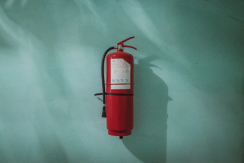
Almost 50% of residents of France, Austria, and Germany live in rental apartments. Some can't afford to buy property, but most enjoy the fewer responsibilities that renting brings. Tenants are usually the people who don't like staying in one place for too long. And if something breaks, they can always rely on landlords to fix it.
For those who are already tenants, renting may seem easy. However, it can become quite challenging for those who moved to another country and want to rent there for the first time. In this article, we'll provide the necessary steps you need to take to find an ideal apartment.
Step 1: Choose Your Main House Criteria and Budget
Before you start your apartment search, you need to outline your budget. You need to know how much money you have and how much you are ready to spend. Once you do that, try to think of the criteria your future apartment should meet. Make up your mind about:
* type of property you need (house or apartment);
* property size;
* location (city center or suburb);
* number of bedrooms; and
* furniture you will need.
It will be easier for you to find a property and form a budget after outlining these features. Manage your finances responsibly. Remember to set some money aside for the next rent check.
Step 2: Choose the Search Medium
Now that you know what you want and have a budget, you can begin your search. If you have friends living in the area you want to move in, you should contact them. They might assist you and provide you with the best option money-wise.
If you weren't lucky enough to have such a friend, searching for property online is an option to consider. There is enough property to rent online for you to spend a whole day scrolling. Luckily, most websites have filters allowing you to enter desired property criteria and discard all the unwanted options.
The problem with some websites is that they lack details, have an insufficient amount of photos, or provide limited options. Another thing is that some people may provide you with incorrect information about an apartment, or even go as far as charging you double the amount of money the apartment really costs.
To avoid any complexities of the legal side of things, consult a property agent. When you're hesitating between two options and can't decide which one is better, an agent will advise you on settling the right decision. Contact a real estate platform, and they will refer you to a professional real estate agent.
Step 3: Go to House Viewings
After you get your mind set on a couple of apartments, you can arrange a viewing. Ask to view the apartment in daylight. Consider arriving a few hours earlier than the appointed time to explore the surrounding area. You want to make sure that the neighborhood that you will be living in has everything you might need.
While viewing the apartment, examine everything carefully:
* condition of fixtures and fittings;
* things that might need repairing;
* state of the plumbing system;
* placement and number of electrical outlets;
* security measures in the building (cameras, intercom);
* view from the windows; and
* overall atmosphere of the place.
You can always ask to come for a second visit at a different time. If you are dissatisfied with the apartment, your agent will help you find another one.
Step 4: Prepare Rent Documents
Another crucial aspect of renting is documentation. Without proper documents, you won't be able to sign a lease and rent any property. The set of required documents varies depending on the country and region you want to rent in. Most European countries have the same requirements:
* Proof of identity. For most people, it would be their ID card. Make sure that you have a copy of your ID.
* Proof of income. By providing this document to landlords, you will prove to them that you can afford the place. Landlords might ask you to provide your salary information for the past three months. Most of them expect you to earn at least three times the amount of your monthly rent.
* Bank information. You need to have an active bank account through which you will be paying your rent.
* A guarantor. In Austria and other EU countries, landlords require you to have a friend who will be able to cover your rent expenses at least for one month for you.
* Credit history. Landlords need this to check whether you have any debts.
Ensure that your property is covered by local lease law before signing your rental contract. Discuss the policy on your specific needs, such as smoking or pets.
To Sum Up
Renting an apartment may seem intimidating at first. By following these four simple steps, you will streamline the process of finding property and minimize your financial and time expenses. Discover the specifics of renting an apartment with Luxury-Vienna now!











Author
Homesgofast com
Homesgofast.com is an international real estate portal and news source for Google news. Publishing international real estate, finance, homes and travel-related news and blogs for a targeted audience since 2002. Each news item is circulated to thousands of potential readers each day and is also available to the millions of people who sign up for Google news alerts. Find homes offered for sale and to rent direct from owners and some of the best real estate agents from over 35 countries